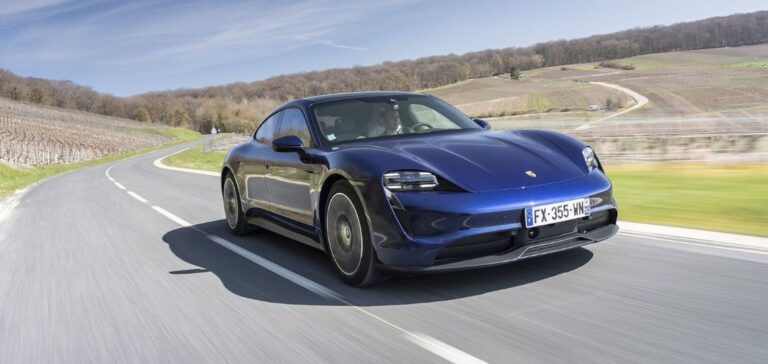Volkswagen subsidiary Porsche recently announced its interest in the large-format battery business of renowned German manufacturer Varta. The two companies have signed a non-binding agreement of intent to create an independent entity to enable Porsche to take a majority stake in V4Drive. This potential acquisition has not yet been priced, but has already had a noticeable effect on the Frankfurt stock exchange, where Varta shares jumped by almost 20%.
For Varta, this capital injection would be a welcome breath of fresh air. In the throes of restructuring and heavily in debt, the company would benefit from crucial financial support. According to Robomarket analyst Jürgen Molnar, Porsche’s investment could have a liberating effect on Varta’s finances. Since the beginning of 2021, Varta shares have fallen from almost 200 euros to just over 10 euros. This project also marks the energy transition of most automakers, such as Ferrari, which is going electric with a new ultra-modern plant in Maranello.
Porsche’s ambitions in high-performance batteries
For Porsche, this operation is part of a broader electrification strategy. In 2021, the brand launched Cellforce, a subsidiary dedicated to the development and mass production of high-performance batteries, scheduled for 2024. However, the location of the plant remains undecided, despite an initial option in Baden-Württemberg. American subsidies via the Inflation Reduction Act (IRA) could steer the decision towards the USA, offering a favorable economic environment.
Porsche also plans to source batteries from Volkswagen subsidiary PowerCo, which is due to start production in 2025. A Porsche spokeswoman said that no final decision had been taken, stressing the importance of this potential acquisition in reducing Porsche’s dependence on Asian suppliers such as CATL.
Challenges and prospects for Porsche electrification
Porsche’s investment in Varta comes against a backdrop of increasing competition from Chinese brands, leaders in the electric vehicle market. In 2023, Porsche sold around 40,629 units of its 100% electric Taycan model, representing 12.7% of total sales. To reach its target of over 80% electric model sales by 2030, Porsche needs to accelerate its technological development and strengthen its production capacity.
The potential partnership with Varta could provide Porsche with the resources it needs to develop high-performance, reliable batteries, crucial to its future ambitions. This acquisition could also enable Porsche to diversify its sources of supply and better control its production chain, in the face of geopolitical uncertainties and fluctuations in the raw materials market.
Porsche’s strategy, combining investment in battery technology and geographic diversification, reflects a clear determination to become a leader in the electric vehicle sector. The finalization of the agreement with Varta could mark a decisive step in this transformation.






















